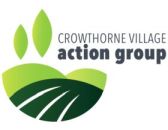Objecting To a Planning Application
Perhaps your neighbour wants to build a large extension or, even worse, a developer has applied to build a block of flats or a hotel next to your house. This section is provides a guide as to how best to object to those plans.
Get Information
The first thing is get information on what is proposed. Full details will be available on the relevant planning website.
- If it is in Bracknell, go to https://planapp.bracknell-forest.gov.uk/online-applications/
- If it is in Wokingham, go to https://planning.wokingham.gov.uk/FastWebPL/welcome.asp.
You can search on keywords, such as postcode, or via an interactive map. When you’ve found the application you should see all documentation, including site plans, drawings of proposed works and often a statement by the would be developer, usually saying what a wonderful asset to the community it will be if their application is approved. Any comments registered by other neighbours will also be here.
This is where you can submit your objection. Be aware, your comments will also be published so make sure they are reasoned and not overly emotive!
Valid Reasons for objecting
You may comment on or object to a planning application for reasons such as:
- Contrary to council policies, such as not in an area scheduled for development.
- Overbearing, If the scale and mass would have a negative impact on the view as seen from the street or surrounding properties.
- Out of character, with design, appearance and materials being out of keeping with area
- Overshadowing, if the scale or proximity would lead to a loss of light in your habitable rooms
- Overlooking/loss of privacy, such as windows facing into your house or garden
- Visual amenity (but not loss of private view)
- Adequacy of parking/loading/turning
- Highway safety, including visibility at entrance/exit
- Road access
- Increased Traffic
- Noise and disturbance resulting from use
- Smells
- Loss of trees
- Effect on listed building or conservation area
- Landscaping
- Local, strategic, regional and national planning policies
Objections deemed NOT Valid
- Any perceived loss of property value
- Private disputes between neighbours
- Loss of a view
- The impact of construction work
- Restrictive covenants
- Ownerships disputes over rights of way
- Fence lines etc
- Personal views about the applicant.
Copy your objection to both your Parish Council and your Borough councillors so that they’re aware of your concerns. The parish council will be consulted and asked to submit their comments on any applications in their Parish, so make sure they know about your concerns.
Contact your neighbours to see how they feel. The more objections there are, the more weight is given. Petitions have limited effectiveness, often appearing in the officers report as a single line; “A petition with xxx signatures was received.”
The Process
After a consultation period, the planning officer will prepare a report as to whether the application complies with current planning policies. The report will include a summary of the objections received. In many cases the planning officer will then make a decision using their “delegated powers”. If it complies with policies, then it is approved. If not, it isn’t.
In some cases, the application will be referred to the Borough Council planning committee, which is made up of elected councillors.
- In Bracknell it is referred to the committee if there are more than 5 objections, or it is referred by a Borough councillor.
- In Wokingham it is only referred to the committee if it is referred by the Borough councillor, however many objections are received.
If it goes to committee the officer’s report will make a recommendation on whether or not the application should be approved. The council committee does not always follow the officer recommendation, but they must have good reasons for not doing so. If it goes to committee there is an opportunity for an objector to speak at the committee meeting, directly putting their concern to the committee members. However this is tightly controlled according to specified conditions and time is limited.
- For Bracknell, only one person can speak for the application and one person against. They will only have 3 minutes each to speak and state their case. Who speaks for and against is for the public, who register through customer services, to decide between themselves.
To speak at the committee meeting you must register with the council by midday at least 3 working days before the day of the meeting (for example, midday on the preceding Monday for a Thursday meeting).
More information on speaking to planning committee at Bracknell here .
- For Wokingham, there is 9
minutes speaking time for each proposal. This is divided in the following order
between:
- Town or Parish Council – 3 minutes
- Objectors – 3 minutes
- Applicants, agents or supporters – 3 minutes
More information at https://www.wokingham.gov.uk/council-and-meetings/meetings/ask-to-speak-at-planning-committee/.
If an application is refused, the applicant can appeal to the secretary of state who will appoint a planning inspector to review the decision. This is usually done at a public hearing, where the applicant may employ specialist planning consultants and legal advisors to argue their case. However in this case the council will be on your side as they will be arguing why they were right to refuse the application.
If you haven’t already done so, join CVAG! We have many years experience of fighting inappropriate applications, so if you have any questions please do not hesitate to contact us.
